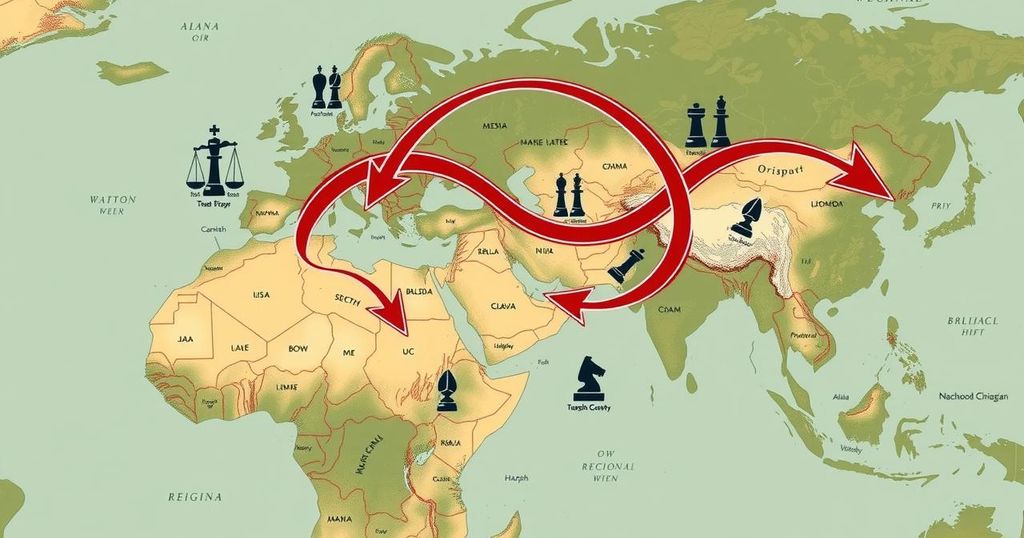Hezbollah MP Ali Fayyad acknowledges a significant strategic defeat for the group due to the fall of the Assad regime, emphasizing challenges from new Syrian leadership linked to past adversaries. He discusses the loss of key supply routes, the need for a more institutional leadership model, and emphasizes Lebanon’s government’s role in security matters while hinting at Hezbollah’s recalibrated approach amidst diminished regional influence.
In a recent interview with the Iranian state-run Hammihan newspaper on March 11, Hezbollah Member of Parliament Ali Fayyad acknowledged that Hezbollah has experienced a significant strategic setback due to changes in Syrian politics. He stated, “We cannot deny it,” referencing the impact of the Assad regime’s fall on Hezbollah’s regional positioning.
Fayyad emphasized that Hezbollah is facing new challenges as the Syrian leadership has shifted towards groups historically opposed to Hezbollah. This transformation complicates Hezbollah’s operations and revises their strategic calculations for the region. He also noted the loss of vital logistics routes for weapon supplies, indicating that the group must adapt to this altered landscape.
Further, Fayyad expressed concerns regarding Syria’s future role as a strategic ally, particularly concerning its stance on Israel. He asserted that Hezbollah is monitoring the new Syrian leadership closely, apprehensive about potential changes in alliances. Additionally, he remarked on the organization’s transition from a leader-centric model under Hassan Nasrallah to a more institutionalized framework under Sheikh Naim Qassem.
Discussing military operations, Fayyad stated that it is crucial for the Lebanese government to oversee security matters. He indicated that any integration of Hezbollah’s military forces into state institutions is not on the immediate horizon. Fayyad suggested that Hezbollah’s strategic approach will depend on how the Lebanese government develops its defense capabilities.
Fayyad acknowledged a shifting relationship between Hezbollah and the Lebanese state, recognizing governmental responsibility for implementing UN Resolution 1701. He candidly noted the adverse effects of the Syrian conflict on Hezbollah, stating, “There is no doubt that the political transformation in Syria was a major strategic blow for us. We cannot deny this.” This reflects Hezbollah’s careful recalibration amidst diminishing military strength and the broader decline of Iranian influence in the region.
In conclusion, Ali Fayyad’s statements highlight Hezbollah’s recognition of its strategic challenges and the impact of the changing political landscape in Syria. The group’s evolving relationship with the Lebanese government suggests a potential shift in its operational strategies as it navigates a diminished capacity and seeks to reassess its alliances within a waning Iranian influence regionally.
Original Source: www.ncr-iran.org




